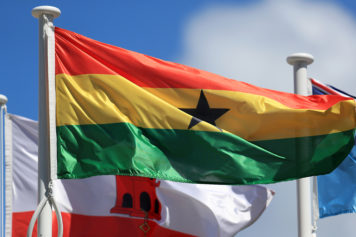For the first time in 13 years, the Global Entrepreneurship Monitor (GEM) study of 59 economies shows that women are creating businesses at a greater rate than men in three economies, and in four others, the rates are nearly equal. In Ghana, Nigeria and Thailand, the rate of nascent women is higher than men, and in Brazil, Ecuador, Uganda and Switzerland, the start-up rates by gender are equal. While in the other 52 economies the rates of women start-ups are lower than men, sometimes up to 6x lower, this is generally good news, perhaps signaling a positive trend. This equalization follows decades of legislative, policy and sociocultural changes that have gradually empowered, supported and trained women to perceive opportunities and believe they have the capabilities to start businesses.
Why does this matter?
In the first place, women entrepreneurs are creating jobs, innovation and contributing to the GNP of various economies just like their male counterparts. Second, and more compelling, are the contributions women entrepreneurs make to society. There is growing evidence that women are more likely to reinvest their profits in education, their family and their community. Ironically traditional measures of economic development and business performance do not often capture the true transformational benefits of these transformational businesses.
For example, the path-breaking work of Muhammed Yunus and the Grameen Bank shows that small micro-credit loans given to women are nearly always paid back and that the funds are used to invest in businesses, that provide funds to educate children and lift families out of poverty. Similarly, a recent study I conducted with my colleagues shows that women are more likely to start businesses with both social and economic goals, or hybrid ventures (Meyskens, Allen & Brush, 2011).
But more compelling are stories of how this is working—I recently attended a conference in Brazil and learned about two important examples. The first is the story of ARZU. After years in investment banking, Connie Duckworth founded ARZU Studio Hope in 2003 after a trip to Afghanistan with the inaugural members of the U.S. Afghan Women’s Council, commissioned by President George Bush. Motivated by the extreme poverty in the war-torn area, she committed to create a non-profit organization that would create sustainable change for women through job creation and worker benefits. ARZU which means “hope” in Dari, is an innovative model of social entrepreneurship that helps Afghan women weavers and their families break the cycle of poverty by providing them steady income and access to education and healthcare by sourcing and selling the rugs they weave. Over the past 10 years, ARZU has employed 700 weavers from 7 villages, and 95% of the employees are women. Significantly, funds raised through sales of rugs go directly into education and food.
Another example is Coca-Cola’s Colectivo program in Rio de Janiero. Colectivo – which means “collective” in Portuguese – was launched as a means of helping women in the region become entrepreneurial leaders while helping their communities by using the company’s value chain. In one of the favelas, outside of the city, one woman (Regina Silva Gomes) decided that she would collect local garbage and exchange it for food. This led a project to clean up the community, where the streets were littered with trash and infested with rodents.
After years of personal and economic struggles, she eventually set up a recycling system where families could bring their garbage to her for recycling, in exchange for food at the local grocery store. Coca-Cola helped her, as many other women, with management skills, infrastructure and price strategy. Another program, called Colectivo 1st Job, was set up to teach young adults from the favelas business skills to become employable, supported by the company with supplies, facilities and educational support. Ceree Eberly, of Coca-Cola, notes that the Colectivo 1st Job has trained more than 25,000 young adults, 66% of which are female. The students attend a two-month program, learning basic business economics, retailing and communication skills, culminating with the development of a business plan for a local business …
Read more: forbes.com


